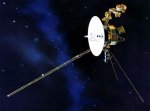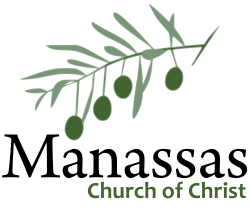 In 1777, on his third and final voyage, Captain James Cook gave the King of Tonga the gift of a turtle. The Tongans gave it the name Tu’Imalila, and considered it a chief. It lived at the Royal Palace grounds in the capital of Nuku. The Turtle lived there for 189 years, surviving a fire which blinded it. Tu’Imalila thus lived long enough to encompass the Age of Exploration and the Age of Space Exploration. Had the turtle lived 11 more years, and reached its bicentennial, its lifespan would have included the launching of Voyager 2, which has, for some time, been exploring beyond our solar system.
In 1777, on his third and final voyage, Captain James Cook gave the King of Tonga the gift of a turtle. The Tongans gave it the name Tu’Imalila, and considered it a chief. It lived at the Royal Palace grounds in the capital of Nuku. The Turtle lived there for 189 years, surviving a fire which blinded it. Tu’Imalila thus lived long enough to encompass the Age of Exploration and the Age of Space Exploration. Had the turtle lived 11 more years, and reached its bicentennial, its lifespan would have included the launching of Voyager 2, which has, for some time, been exploring beyond our solar system.
On Captain Cook’s second voyage he sailed more than 70,000 miles. It took him four years. Voyager 2 travels nearly that far in an hour. One of Voyager 2’s tasks was to explore Neptune’s moon Triton. It arrived at that destination in 1989, after traveling 4,429,508,700 miles. It arrived 5 minutes ahead of schedule.*
Thinking of Voyager 2 and Captain Cook’s Turtle one could reflect on the lifespan of Tu’Imalila, and the pace of change. One could ponder how far we have come since 1777, or how little we have learned. I am amazed at the accomplishments of both voyages. Captain Cook successfully navigated tens of thousands of miles of the Pacific and Antarctic Oceans in a ship that could easily fit in our auditorium. The folks at NASA and the Jet Propulsion Laboratory produced a machine 30 years ago that arrived at it’s destination at the very limit of our solar system 5 minutes ahead of schedule.
But are these feats any more impressive than the engineering of China’s Grand Canal, the building of the Egyptian Pyramids, or the navigation of the Pacific Ocean by prehistoric peoples?
I write a lot about our foibles and failings for they are not few, and they persist. What is also true is that we, as sentient organisms, are engineered by God, and God doesn’t make junk. Humans are capable of, and often achieve greatness. It is this ability to transcend our physical limits by turning what we can imagine into what we invent that makes us unique in all creation. Captain Cook’s turtle lived long enough to see sailing ships replaced by mechanized ships, replaced by air ships, replaced by space ships – and just kept munching lettuce leaves. Generation after generation passed away during Tu’Imalila’s 189 years - and produced volumes of discoveries.
God, himself, reminds us of the near limitless possibilities of human achievement:
Behold, they are one people, and they have one language…and now nothing which they purpose to do will be impossible for them. Genesis 11.6
These words would be audacious and hubristic if they were not spoken by God.
Nothing will be Impossible.
He should know. He made us.
Nothing impossible.
It is important we remember these words God spoke about us – especially since this year we have set for ourselves the most daunting task of all – harvesting souls (If we think that is easy we should read Isaiah 6 and Matthew 10). Those words were spoken as God looked down upon the construction of the Tower of Babel. The population of humanity was together on the plain of Shinar and had just achieved a technological breakthrough which made the building of tall towers possible – the burning of bricks. They shared a language and vocabulary, a goal, and a plan to achieve that goal. Only the miraculous intervention of God prevented them from achieving their goal. We, similarly share a message, a goal, and a plan. We have a commission from God to do this work. Although we know that we cannot force others to make right choices. We know as well that if we launch forth into the work, we will experience success we didn’t think possible.
God tells us it is.
He made us.
He should know.
*Cleopatra’s Nose, by Daniel J. Boorstin (1994) p.10.




